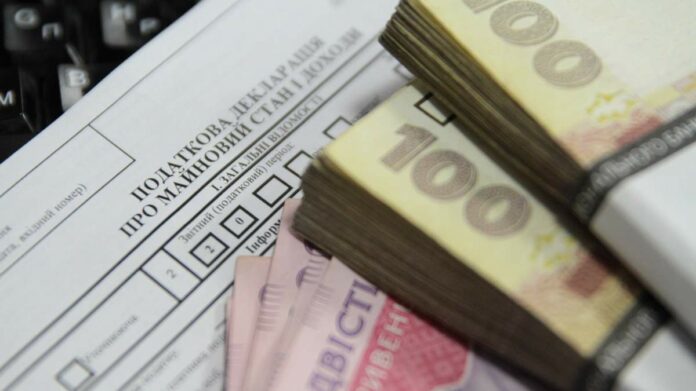Date of publication: 18 January 2024
Dmytro Lazebnyi, Attorney at Law
Source: Focus
The National Revenue Strategy for 2030, which the government released before the new year, raises many questions. According to plans, tax officials will have access to banking information about taxpayers’ accounts. Tax authorities plan to use this information to combat tax evasion.
Many questions have been raised by the National Revenue Strategy for 2030, which was published by the government before the new year. However, its provisions, some of which are quite remarkable, are predicated on the conditions set by the IMF before the subsequent review of the current financing arrangement.
A high-profile provision involves the introduction of a progressive taxation scale with one or two significantly higher rates for a part of the income of persons with high incomes. In addition, the minimum non-taxable income will be replaced by the provision of personal social assistance. All personal income tax benefits will be reviewed.
How will the individual income tax be calculated?
Banking information about the activity of taxpayer accounts will be available to tax authorities. It is intended that tax authorities use this information in order to combat tax evasion schemes.
However, the Strategy does not explain how income accounting will be conducted and what will be considered taxable income.
For example, if I borrow money and transfer it to a borrower’s card and he pays it back, will it be taxable income? This question has not yet been answered. In addition, the Strategy does not include provisions on the accounting and administration of such taxes.
Bank Secrecy and Income Tax
As far as this issue is concerned, we can only discuss amending Ukraine’s current legislation, which will establish the authority of the tax authority to receive information about individual taxpayers’ cash flows. Information of this type will not be received by the tax authorities in any other way.
It is impossible to talk about lifting bank secrecy in such circumstances, since only tax authorities will be able to access the cash flows, and other parties will not have access to them.
Using Banks to Control Income and Expenses of Individuals
This is quite possible, in my opinion. It is also highly likely that a certain threshold amount will be set. It can be determined whether a person is verified if he receives less than a certain sum per year. If he receives more, he is verified.
Moreover, financial monitoring is carried out using this principle (the amount of funds received is one example of a violation of financial monitoring provisions). Therefore, we can say that the mechanism of such verification has already been developed to some extent.
Since not all income received on the card is personal income, the determination of the amount received as income will be more important in this case.
There should be an appropriate mechanism developed, in my opinion. It is likely that such a mechanism will have fiscal characteristics, i. e., the tax authorities will define the amounts as income, and the taxpayers will deny that these amounts are income.
Tax Returns Submitted by Individuals Can Be Processed by Banks?
This mechanism can be considered as one of the possible options. For now, these are just our assumptions.
By preparing the corresponding amendments, it will be clearer how the relevant procedure will be regulated. As a general principle, the idea of tax authorities having access to accounts is similar to the European tax system.
Individuals Will Have to File Tax Returns if They Declare Their Income?
It remains mandatory in Ukraine to file a declaration, and this results in the payer of the personal income tax, who receives income from a non-tax agent, as well as foreign income, being required to include these amounts in the total taxable income. Based on the property status and income of the reporting tax year, you must file a personal income tax return and pay tax on it (Article 168 (168.2.1, 168.2) of the Tax Code of Ukraine).
In general, a tax return on property status and income must be filed for a basic reporting (tax) period, which is equal to a calendar year for personal income taxpayers – until May 1 of the year following the reporting year, except in certain cases (Article 49.18 (49.18.4) of the Tax Code).
The personal income tax rate is 18% of the tax base for accrued income (except for the cases specified in Article 167 (167.2 – 167.5) of the Tax Code), in particular, but not limited to, in the form of: wages, other incentive and compensation payments or other payments and remuneration accrued to the payer in connection with labor relations and under civil law contracts.
Considering the above, an individual who receives income during a reporting calendar year from another individual must include such income in his or her total taxable income. An annual tax return must be submitted based upon the results of the reporting tax year, and it must also be accrued and paid at the rate of 18% personal income tax and 1.5% military income tax to the government.
After declaring and paying taxes, a person has a legal income which he can freely dispose of at his discretion. At the same time, the state receives corresponding taxes.
